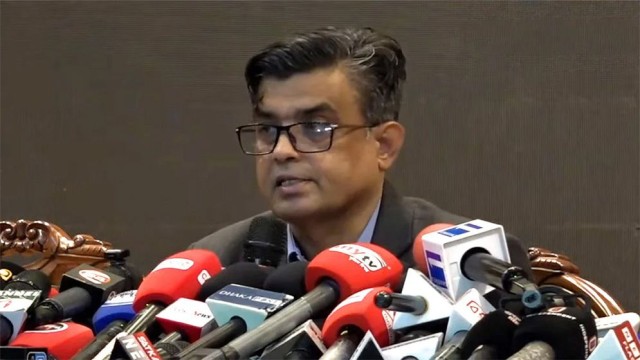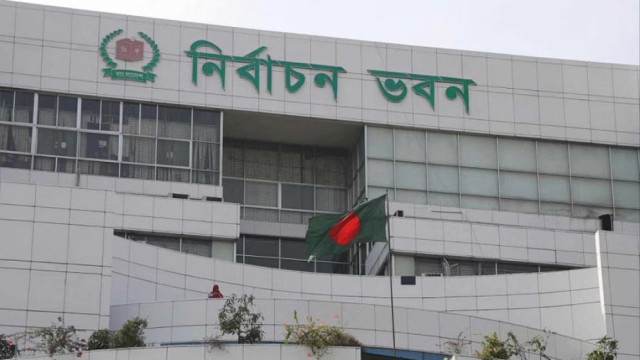Washington, Aug 18 (V7N)- Years of political meddling and regulatory complacency have crippled Bangladesh’s banks. Only bold, transparent, and depoliticized reform can restore confidence.
Bangladesh’s banking sector has long been called the backbone of the economy. But a backbone that bends too easily under the weight of politics and mismanagement cannot support the ambitions of a nation. For more than a decade, our banks have stumbled along—kept alive not by efficiency or discipline, but by rescheduling tricks, political favors, and weak regulation. The result is stark: non-performing loans (NPLs) have crossed Tk 1.55 lakh crore, trust in financial institutions is at an all-time low, and instead of driving growth, banks have become burdens dragging the economy down.
This is not just a balance sheet crisis—it is a crisis of governance. Banking in Bangladesh has often been less about financial discipline and more about political patronage. Instead of channeling savings into productive investment, banks have too often served as piggy banks for the powerful. The scale of default loans reflects not just poor management, but a system corroded by politics.
The numbers tell the story. In 2008, NPLs stood at Tk 22,730 crore (7.4% of total loans). By June 2024, they had ballooned to Tk 155,000 crore, with the ratio rising again above 10 percent. Much of this surge came from politically connected lending. Loans were routinely extended to influential groups such as S Alam, Beximco, and Hall-Mark without adequate collateral or repayment history. When these loans inevitably soured, defaulters were rewarded with repeated rescheduling—sometimes over a dozen times—allowing them to remain “good borrowers” on paper while genuine entrepreneurs were denied credit.
The state-owned banks bore the heaviest losses:
-
Sonali Bank was crippled by the Hall-Mark scandal, with Tk 35,000 crore in defaults.
-
Janata Bank lost Tk 28,000 crore, led by AnonTex and Crescent Group.
-
Agrani Bank absorbed Tk 18,000 crore in politically driven defaults.
-
BASIC Bank became a byword for insider lending, losing Tk 12,000 crore in scandals between 2010 and 2014.
Instead of safeguarding public money, these banks became vehicles for political favors. Defaulters were often allowed to reschedule without even mandatory down payments, turning default into privilege rather than penalty.
Bangladesh Bank, the regulator entrusted with ensuring stability, repeatedly failed to act. Successive governors either lacked independence or resolve. Loan classification rules were bent, rescheduling periods were stretched up to ten years for “special borrowers,” and pre-election reclassifications kept defaulters off official records. Balance sheets were made to look artificially clean while the rot deepened.
This regulatory complacency eroded trust among depositors, investors, and citizens. Meanwhile, powerful borrowers tightened their grip on the system.
The political upheaval of August 5, 2024, which saw the fall of the Awami League government, opened a new chapter. The appointment of Ahsan H. Mansur, a reform-minded economist, signaled intent to break with the past. His administration has already taken important steps:
-
Enforcing stricter loan classification to stop abuse of rescheduling.
-
Initiating mergers of weak banks to reduce systemic risks.
-
Cracking down on insider lending and political meddling.
-
Publishing lists of top defaulters to restore accountability.
-
Offering remittance incentives to strengthen reserves.
These moves are promising, but they will face fierce resistance. Powerful defaulters, political actors, and sections of the bureaucracy have every reason to block reform. The challenge for the new administration will be to stay the course.
The roadmap is clear. First, Bangladesh Bank must be granted real autonomy. Second, full transparency in NPL reporting is essential. Third, repeat defaulters must be barred from fresh loans until they repay in full. Fourth, boards of state-owned banks must be freed of political appointees and filled with professionals. Fifth, legal action against big defaulters must be expedited, including asset seizures. Finally, digital oversight tools must be strengthened to detect risks early.
Bangladesh’s economy is at a crossroads. Exports are rising, remittances are strong, and entrepreneurial energy is alive. But a weak, politicized banking system threatens to undermine these gains. An economy cannot sprint while its banks limp.
Reforming the banking sector is not a technical adjustment—it is a national imperative. A system where defaulters thrive while honest borrowers suffer cannot sustain growth. A regulator that looks away cannot safeguard stability. And a government that treats banks as political instruments cannot build trust.
Bangladesh has a rare chance to reverse decades of decay. If bold reforms are pursued with courage and consistency, banks can once again become engines of growth. If not, the costs will be paid not only in economic stagnation but also in the erosion of public trust and institutions.
The lesson is simple: banking must no longer be about politics. It must be about professionalism, accountability, and the public good. The future of Bangladesh’s economy depends on one thing above all—reform.
Writer : Shahin Howlader , Journalist & columnist,
Member, National Press Club of Washington






























Comment: